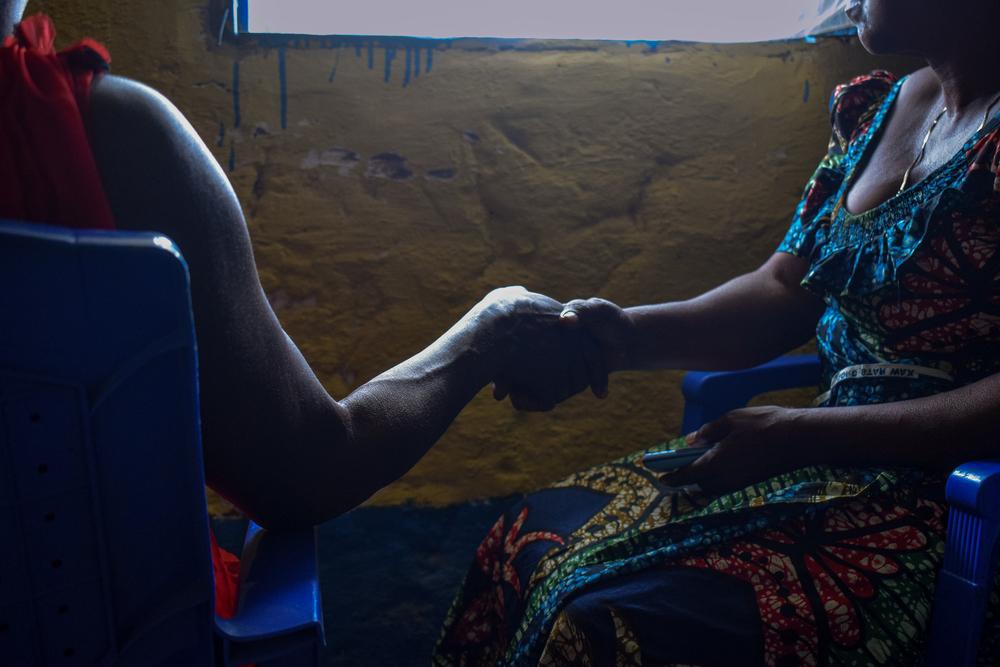"It was the middle of the day when three masked men burst into my house. One of them pointed his gun at my face, the other one grunted orders that I didn't understand, the third one rushed to throw himself on me. I was terrified but I couldn't scream… I think at that moment I had lost the use of my voice."
Tumaïni (not her real name) is 72 years old and lives in Salamabila, in Democratic Republic of Congo’s Maniema province. Like many other people in this mining town – women, children and men – she is a survivor of sexual violence. In Salamabila, armed conflict over the control of mining areas has resulted in large numbers of people being displaced from their homes, many of whom struggle to get healthcare.
MSF teams have been working in Salamabila since late 2019 in support of the Ministry of Health. One of their priorities is to provide free-of-charge medical care and psychological support to survivors of sexual violence.
From July to December last year, MSF teams provided treatment and mental health support to an average of 169 survivors of sexual violence each month at Salamabila general hospital, and a total of 1,800 survivors over the course of the year across Salamabila health zone.
"They are usually withdrawn,” says a community reproductive health worker, who prefers not to give her name. “It takes a lot of courage for them to seek help. And when they arrive at my home they look lost. Some absolutely refuse to be taken to a health facility – they are afraid of being pointed out. We give initial medical and psychological care, as MSF has taught us so well, and after helping them regain their confidence, I take them to a health facility if at all possible.”
In Salamabila, anyone can be subject to sexual violence, no matter their age or gender. Reproductive health workers are trusted individuals elected by the community and trained by MSF to provide medical and psychological first aid to survivors before taking them to a health facility. This method helps ensure survivors get treatment in the crucial 72 hours after an attack.
Stigma is part of their daily lives
Survivors of sexual violence can have a lot to deal with, from physical and psychological injuries to exclusion from the community, sexually transmitted infections and unwanted pregnancies. For many people, the experience is deeply traumatic.
Often the hardest part is the stigma faced by survivors as a consequence of speaking out about sexual. The stigma is related to the idea that sexual violence is degrading to the survivor.
“It was known around the neighbourhood that I had been raped, but some said I had wanted it because I hadn’t screamed,” says Tumaïni with sadness. “Some of my neighbours even forbade their children from passing in front of my house. I couldn’t go anywhere without people pointing fingers at me.”
MSF teams provide medical and psychological care to survivors of sexual violence in six of DRC's 26 provinces: Ituri, Kasai-Central, Haut-Katanga, North Kivu, South Kivu and Maniema.
In Salamabila, MSF also supports the central health zone authorities to reduce mortality from common diseases, including malaria, waterborne diseases, respiratory diseases and malnutrition, which are all endemic in the area. MSF provides free-of-charge medical care to children under 15, pregnant women, new mothers, and people affected by crises. MSF teams work in health centres, hospitals and in the community, referring patients for specialist treatment when necessary.
